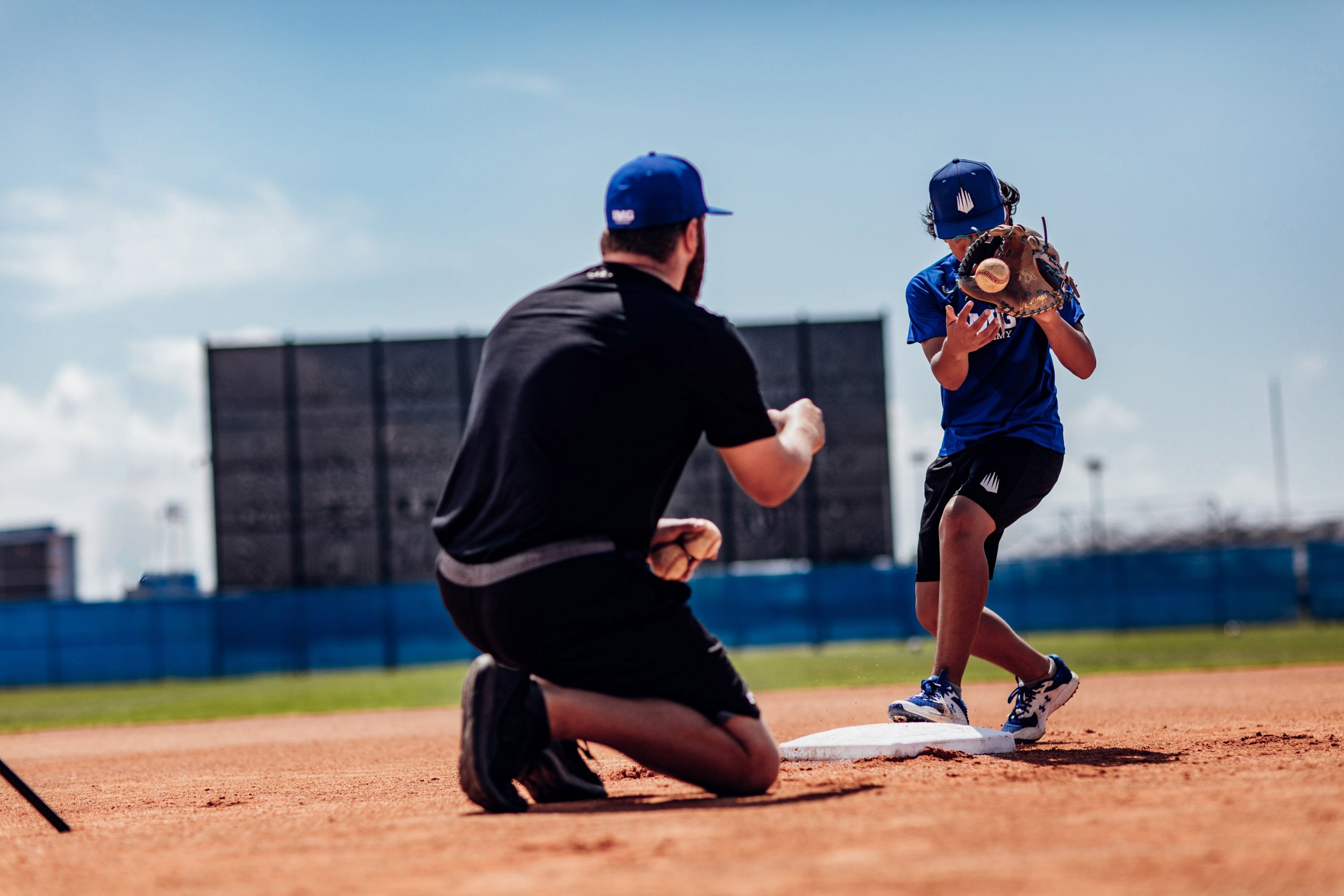The benefits of playing sports extend well beyond the physical outcomes. Your child will also experience enhanced social skills, better preparation for adulthood, and so much more. Dr. Taryn Morgan, Director of Athletic and Personal Development at IMG Academy, says, "I’ve definitely seen over and over how being an athlete can benefit kids – there are so many aspects that translate to both sport and life such as hard work, discipline, focus, working with others, leadership, time management, creating a healthy lifestyle and being a part of something bigger than yourself."
Continue reading below to review a few of the benefits from playing sports to support your decision to sign your child up for a local league or enroll them in a youth sports performance program or sports camp:
Physical Health: Although this benefit may seem obvious, children who play sports will exercise more regularly than those who don’t. While your child is participating in sports, they won’t realize how much exercise they are getting because they’re having so much fun. Your child will have better health, from building up their stamina and endurance to keeping their heart healthy while reducing the risk of obesity.
Self-Esteem: Kids who participate in sports are exposed to a lot of positive reinforcement when they perform well. Scoring a goal, winning a game, or even improving an athletic skill they have been working on will elicit praise from coaches, teammates, and even you, their parent. Children will then have improved self-esteem and overall confidence. Kids also build self-confidence by seeing the results from practicing their sport and the positive outcomes.
Respect for Others: Playing sports helps kids learn a respect for authority and rules. Children who play sports learn to take guidance and criticism from coaches and accept calls that are made by officials. Kids who play sports also learn about the consequences of not following rules or guidance that has been given to them. Children in sports also learn respect for their teammates and other athletes that they are competing against.
Communication Skills: In most team sports, children need to communicate clearly, quickly, and with confidence. While kids also pick these skills up in school, a competitive setting allows them to obtain more real-world experience and practice communicating with their peers organically.
It’s amazing to see the development that can occur when a youth athlete is able to integrate their sport and academic training with all of IMG Academy’s support services provided via strength and conditioning, athletic training, nutrition, sport science, mental conditioning, and leadership. I’ve seen numerous student-athletes reach out once they have moved to the next step in their lives to let us know how much they are able to utilize the skills they learned as an athlete in their future.
- Dr. Taryn Morgan
Critical Thinking: Every sporting competition is different. Opponents, settings, weather, and even the mood or emotions of teammates and coaches will be different every time your child competes. As a result, they will need to adapt to their circumstances quickly while thinking critically about how to deal with their circumstances in order to achieve their goals. Repeatedly being put in this situation will help your child develop their critical and quick thinking skills, which will benefit them outside of sports as well.
Mental Health: The increased physical activity that comes with participating in sports doesn’t just lead to improved physical health, but it also improves mental health. Physical activity stimulates positive chemicals in the brain, leading to an elevated mood and lowered stress. Participating in sports also provides a distraction from daily stress and negative thought patterns while reducing cortisol and adrenaline levels and feelings of anxiousness.
Improved Academics: Studies have shown that playing sports has a positive impact on academic performance. Physical activity may lead to short-term relaxation throughout the body which enhances creativity and mood, better memory and concentration, and better problem-solving skills. All of these benefits will also result in higher grades.
Interpersonal Skills: Children who participate in sports see each other for several hours each week. In many cases they commute to sporting events together by bus, or their families all meet together in various different towns for a competition that requires an overnight stay, which means meals and downtime will be shared as well. All of this time spent together will lead to strong bonds as well as even small conflicts that your child will need to learn how to resolve maturely.
Perseverance: Playing sports teaches kids to persevere through hardship. If a child is experiencing trouble grasping a skill in their sport, is in the midst of a game that they are losing, or is trying to bounce back from a defeat, perseverance is what will propel them through. The desire to improve and win will drive your child to work hard to achieve their goal, and, when their hard work pays off, they will learn the value of persevering.
Playing sports as a part of a team or a youth sports performance program is fun for your child, but it also has countless other benefits that will help your child even outside of sports. Encourage your child to become involved in their school sports team, or sign them up for a local league, and watch them thrive!
Download the High Performance Parenting guide and work through five modules to guide you through supporting your student-athlete.
Download Now









